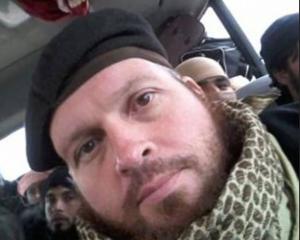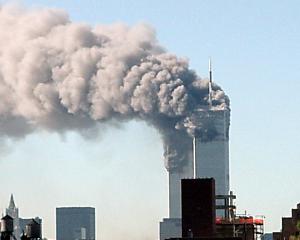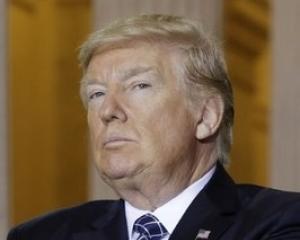France says it wants the UN Security Council to set up humanitarian corridors in Syria to alleviate civilian suffering and that it is negotiating with Russia on a new UN resolution on the conflict.
Russian Foreign Minister Sergei Lavrov said his country, which has already joined China in vetoing two Security Council resolutions on Syria, could not support using the UN body to "help legitimise" regime change in Damascus.
Paris suggested in November creating a safe passage for relief organisations, with Syrian approval or an international mandate, to get food and medicine to civilians caught up in the 11-month-old struggle to topple President Bashar al-Assad.
"The idea of humanitarian corridors that I previously proposed, to allow NGOs to reach the zones where there are scandalous massacres, should be discussed at the Security Council," Foreign Minister Alain Juppe told France Info radio.
Lavrov was non-committal when asked whether Russia support such a plan. "It's impossible to answer such questions without having language (details) in your hands," he told reporters.
On Feb. 4, Russia and China blocked a draft Security Council resolution supporting an Arab League call for Assad to step aside as part of a transition to democracy, provoking strong criticism from Western and Arab states pushing for the measure.
Since then, violence has intensified, with Syrian forces attacking opposition strongholds. On Wednesday troops backed by armoured personnel carriers stormed a Damascus suburb.
Under the French plan, humanitarian corridors would link Syrian population centres to the frontiers of Turkey, Lebanon or Jordan, to the Mediterranean coast or to an airport.
Juppe has said the zone could be protected by armed "observers", but has ruled out direct military intervention.
A French diplomatic source said a UN resolution would be needed to create the corridors, but who would protect it, be it peacekeepers or unarmed observers, was still to be assessed. Financing of such an operation would depend on its form.
Juppe, who meets Lavrov in Vienna on Thursday, may struggle to get the idea off the ground given Moscow's reticence.
"In our contacts with the Russians, including this morning in Moscow, we didn't sense any particular give in the Russian position. But obviously we will be looking at what the possibilities are," a senior Western diplomat said.
Juppe met a dozen aid and human rights groups on Tuesday to discuss what they needed to provide support to besieged Syrians.
"There is a humanitarian crisis developing because of the political repression," said Antoine Bernard, executive director at the Paris-based International Federation for Human Rights, who attended the meeting with Juppe. "We are seeing a serious problem with access to food, potable water and medicine as well as denying healthcare to repress."
After the talks Paris announced a 1 million euro fund for aid agencies involved with Syria and said it would propose a similar one at an international level when a "Friends of Syria" contact group meets in Tunisia on Feb. 24.
Bernard said the French proposal followed an Arab League resolution on Sunday which called for Arab and international plans for humanitarian action. Among these, he said, was a proposal from Jordan for a refugee camp on its border with Syria.
The United Nations has been shut out from humanitarian work in Syria, where the International Committee of the Red Cross is the only international agency to deploy aid workers.
Asked about France's proposal, Elisabeth Byrs, a spokeswoman of the UN Office for the Coordination of Humanitarian Assistance (OCHA), said a cessation of military operations and safe and unfettered access to all areas were needed.
"Over the past year we have repeatedly asked the Syrian government for access but have so far been unable to move beyond delivering goods through the limited capacity of the Syrian Arab Red Crescent and a small number of local partners," she said.
Juppe said Paris was renegotiating the resolution at the Security Council to try to persuade the Russians to change their position. The source said that it was too early to say if the corridors would be included in that draft.
The Western diplomat said ideas being floated for a new resolution, which was still at an early stage, were more modest than Juppe's proposal.
Among those was to give UN Secretary-General Ban Ki-moon a mandate to explore with the Arab League avenues for possible cooperation between the League and the UN in Syria.
At the United Nations, the General Assembly is due to vote on Thursday on a draft resolution that backs the Arab League plan and calls for the appointment of a joint UN-League envoy on Syria. There are no vetoes in General Assembly votes and its decisions are not legally binding.
Juppe said the "symbolic" vote would add to the pressure.
France, the first Western nation to recognise the Libyan opposition early in 2011, has championed the opposition protests in Syria, where it says at least 6,000 people have died.
It considers the opposition Syrian National Council, whose leader is based in Paris, a legitimate partner, but has said it needs to do more to unite its various sectarian strands.
Paris was also behind the UN resolution to create a no-fly zone over Libya that permitted action by foreign military forces, including NATO. Russia believes it was misled on that resolution and has vowed not to make the same mistake twice.
The frontrunner for this year's French presidential elections, Socialist Francois Hollande, has backed President Nicolas Sarkozy's stance on Syria and called for the United Nations to refer the matter to the International Criminal Court.











